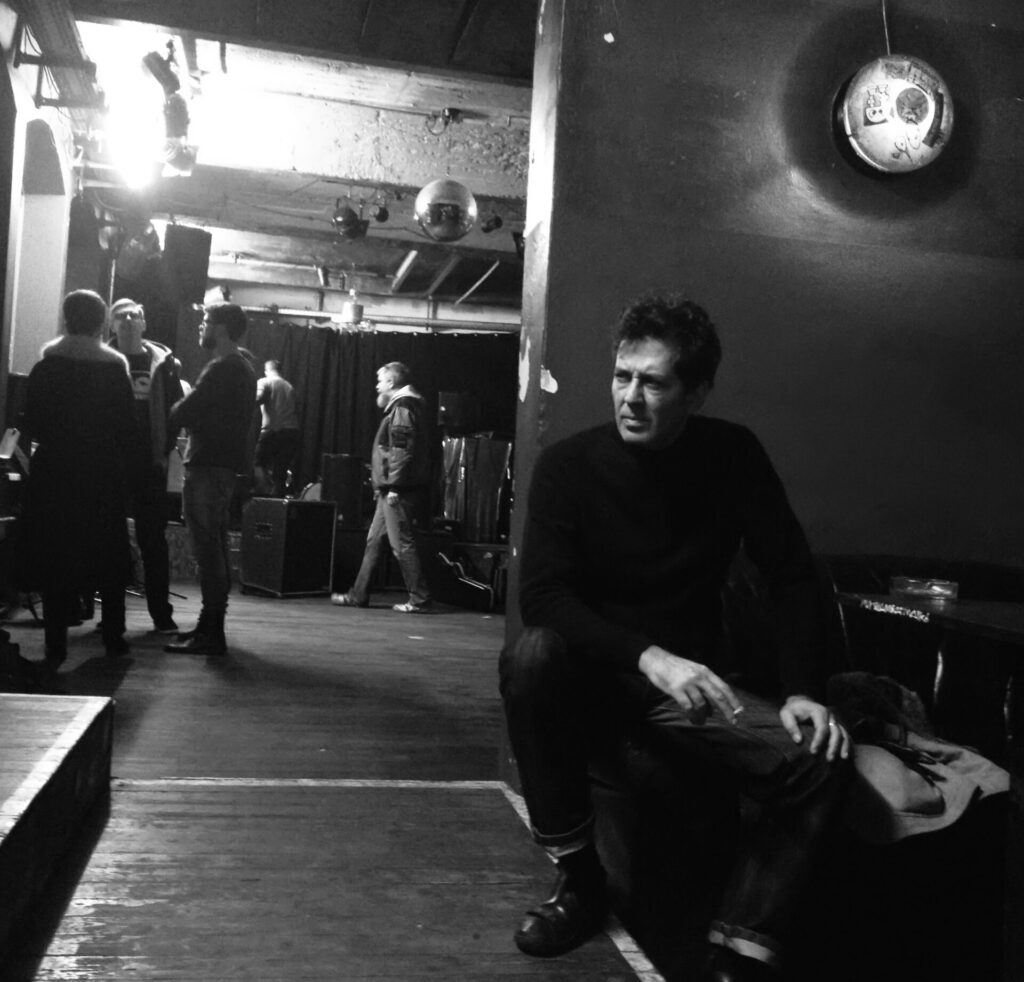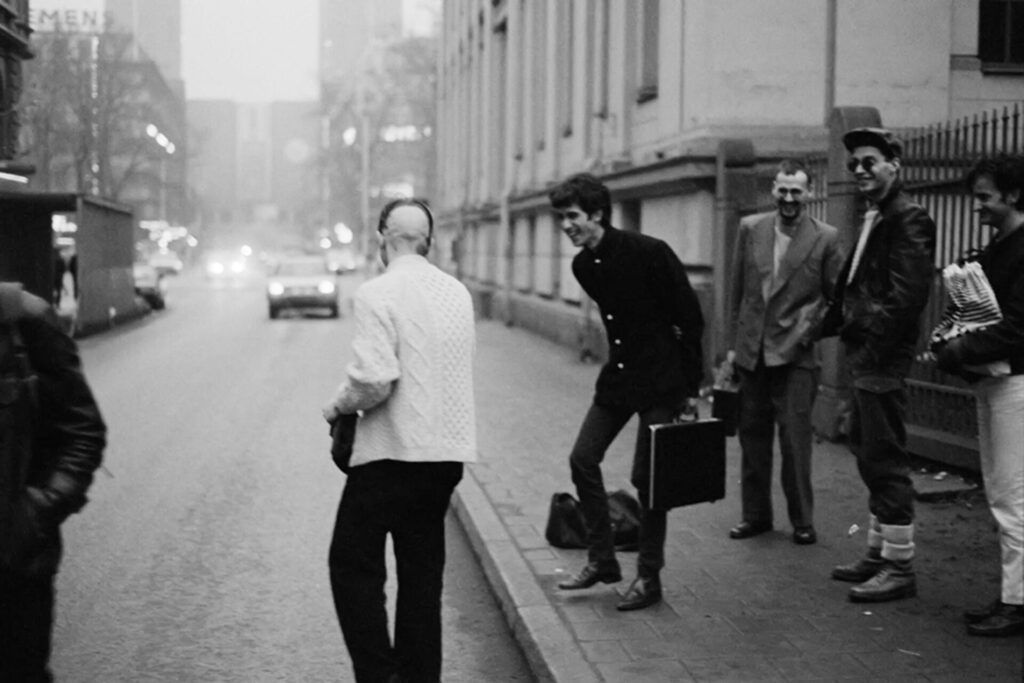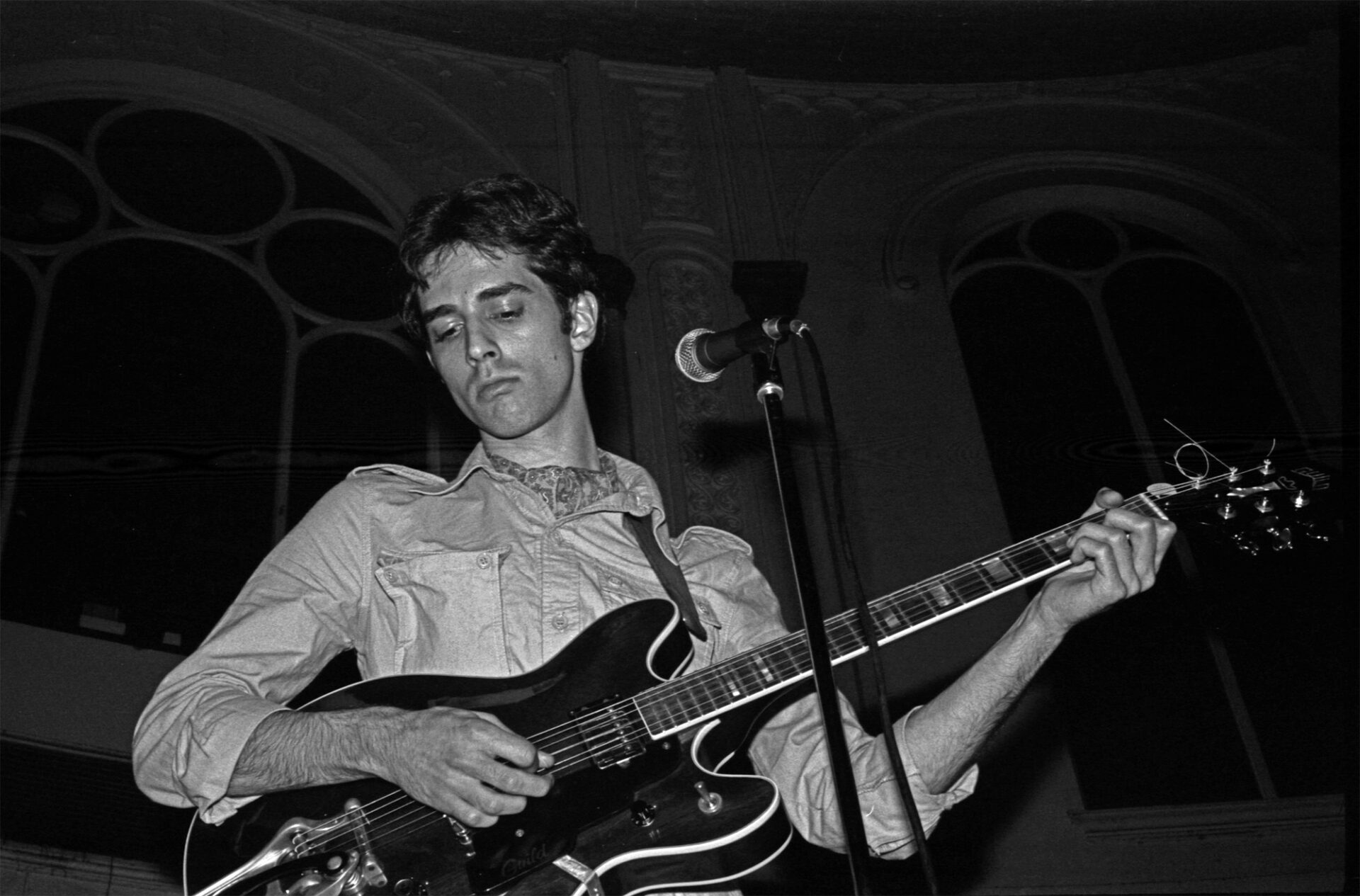In 2010, I survived a ruptured cerebral aneurysm. The following is an extract from Chapter 2 of the book, Strange Young Alien. The references to Lille and Osaka concern two gigs in early 2011 when I had to stop playing as I had completely lost comprehension of the songs.
In the summer of 2011, I started to write the songs that were to make up the Platinum Coils album. As the lyrics started to glide out of me, it was clear that the subject matter of all of them was the aftermath of my aneurysm. It really wasn’t something that I wanted to write about, but the songs were good, so I just went with the flow. This may have been the first time in my life that I had really been attentive to not being in control of what the lyrical ideas were.
During the writing I started to tire quite quickly and was unable to go for more than 20–30 minutes without a pause. I got into the habit of taking little breaks (sipping tea, staring blankly at dust, throwing paper balls for the cat) until I felt better, which didn’t take too long.
Halfway through one lyric I went into the kitchen to make tea, and as I was doing so looked at the basil plant nearby. At that moment I realised that I didn’t have a word for it, in fact there were no words in my head at all.

I deduced that back in Lille and Osaka I must have suffered from a sort of temporary aphasia, which is a condition where a person’s understanding of language is compromised, at varying degrees of severity, and is a typical consequence of brain trauma. In my case it seemed that my ‘way in’ to those songs was via the lyrics, and without my understanding of them I was helpless.
The basil incident confirmed the aphasia very plainly. It was an interesting experience; I knew that it was food and good to eat, but without a word for it it did not have the immediate connections to the wider knowledge that words bring. It was like a familiar unknown. I made my tea and went back to my song, and it didn’t take very long for the words to reappear.
It seemed to me that my brain was shutting off the language centre, as it was not capable of keeping up with the demand – I imagine that creative writing must use up a lot of mental energy, and my brain was not only permanently damaged but also still undergoing some sort of rewiring process.
And then I saw it.

During the writing of a particular lyric I again felt tired and in need of a short break, but as I relaxed and slightly leant back, my hand continued to write! I was certain that I was not in control of it, but I felt strangely calm. It reached the end of a line and immediately went to write another.
I was unable to comprehend what was being inscribed, as the characters were not only like a completely foreign script to me, but also slightly out of focus (an interesting detail). As it reached the end of the second line, my hand stopped and tilted the pen slightly, as if it – or something – was satisfied with what had been written.
When I was sure that it had ceased I regained control of the hand and put the pen on the nearby table. I sipped some tea and recovered my energy, as I had done before in similar episodes.
I then inspected the two lines that had been ‘written by hand’, expecting to see nonsense, but surprisingly they were the sort of lyric that I would normally write. Except that I hadn’t written them.
Perhaps the notion had been nascent for a long time, but it very quickly came to me that I, or what was my conscious self, may never have written any of my lyrics. The more I considered this the surer I was of it. Indeed, this apparently gigantic leap seemed quite rational given not only my perplexity as to the source of some of my material, but the many stories that have been related by other artists down the years.
While writing Isis Unveiled, Helena Blavatsky claimed to be aware of a second consciousness within her body, referring to it as “the lodger who is in me,” and stating that it was this second consciousness that inspired much of the writing.
“I never exactly made a book. It’s rather like taking dictation. I was given things to say.”
– CS Lewis
After further reflection it made perfect sense to me that what I had just seen at work was an alternative identity within me; one that had control of my hand, my eyes (see my comment above regarding focus), and my lexicon – which was not available to my consciousness at that moment. I did not physically feel its presence, but it was definitely there, as I had seen it quite confidently writing without any direct input from me.
I do not feel that this was what is known as ‘automatic writing’. In my experience, this is induced by the consciousness in an attempt to connect to either the subconscious or otherwise some ‘supernatural force’; it feels entirely contrived and does not produce the same level or type of writing at all.
I do not feel that was either the subconscious or the ‘dream self’. Both of these parts of the brain function frequently, both have their own areas of activity, and the animations of the dream self are often visible. The Creature (as I will now call it) does not operate in the same regular way, and when it does, is not connected in the same way to the consciousness.
Strange Young Alien – Selected Lyrics by Bid is published by Ventil Verlag


